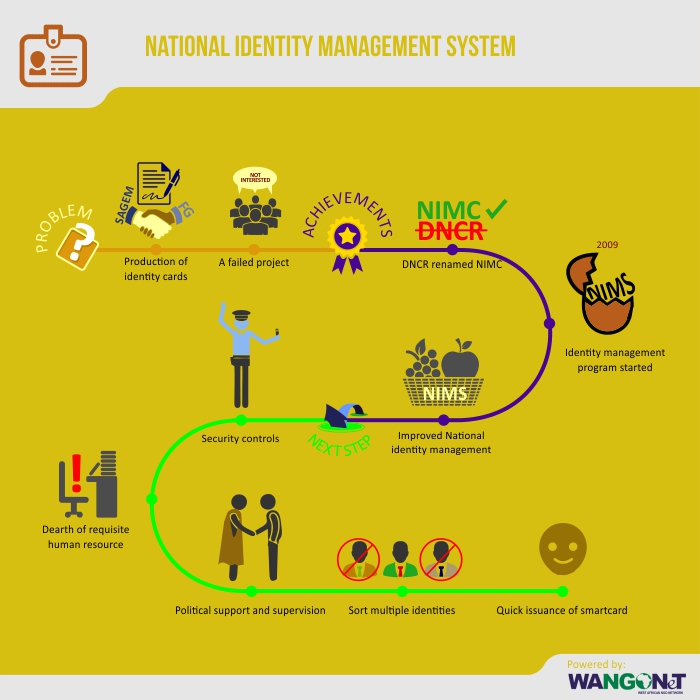Chapter 20
National Identity Management System
Background
The idea of having a national identity management system was first mooted in 1978. In 2001, a contract was awarded to French firm Sagem for the production of identity cards for all Nigerian citizens. The identity card scheme was, however, marred by corrupt practices and in 2003 only a few Nigerians received identity cards under the scheme. Different government agencies such as the Independent Electoral Commission (INEC), and the National Population Commission (NPC) that required data on most or all Nigerians, thus had to create their own databases. This would have been unnecessary if a national database had existed.
Past Reform and Achievements
In 2007, government established the National Identity Management Commission (NIMC), to implement the identity management reform, and replace the Directorate of National Civic Registration (DNCR). The NIMC initiated the National Identity Management System (NIMS) programme in 2009. NIMS comprises of a national identity database, also known as a Central Identity Repository or Register (CIDR), a chip-based, secure identity card, and a network of means to assert the identity of an individual. The first phase of the identity scheme ran from 2011 to 2013. The enrollment exercise for the issuance of the National Identification Number (NIN) started as a pilot scheme in February 2012 and was extended to cover all states of the Federation on 17 October 2013. A User Acceptance Test was carried out on the National Identity Smart Card facility to ensure that it conforms to international standards and best global practices in tune with the defined objective of the NIMS project. ISO 27001 Certification for information security management system was secured.
Challenges and Next Steps
A more robust enlightenment about the gains of IDM should be carried out to remove public cynicism and unfavourable perception of the identity sector that stemmed from the wasted efforts of the past. An interoperability platform should be urgently established to avoid high incidence of multiple identities. Persons that have enrolled on the NINs should be issued with their national identity smartcards immediately they enroll on the system. Issuing of national identity smartcards to people who had registered should be fast tracked to encourage others to register. Concessionaires should be made to fulfil their obligations, which include setting up and running enrolment centres. Human resource and capacity building should be prioritised.


